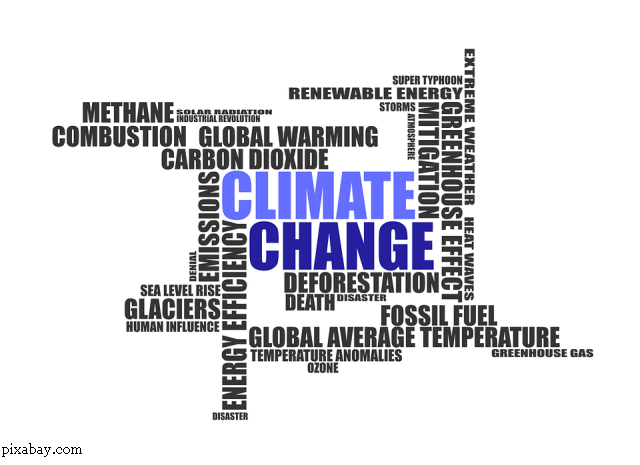Warnings and measures concerning global warning
Global warming could pass 'the point of no return', warned the UN Secretary- General Antonio Guterres, in a speech held before the recent UN Climate Change Conference

Corina Cristea, 20.12.2019, 12:39
Humanity must put an
end to the war against nature, the planet is fighting back and there is a
danger global warming could pass ‘the point of no return’, warned the UN
Secretary- General Antonio Guterres, in a speech held before the recent UN
Climate Change Conference. He described the attempts to meet the CO2 emissions
reduction targets as utterly inadequate, but showed confidence that firmer
commitments would be made at the Madrid conference. Big countries, such as the
US and Brazil, have resisted the pressure to intensify efforts to combat global
warming, to the discontent of the smaller states and despite protest movements
calling for urgent measures. Therefore, the summit in Madrid, seen as a test for
the collective will of the governments to listen to advice coming from
researchers, who warn that temperatures are about to reach an irreversible
level, was far from being a success.
The summit was held after
the adoption in late November by the
European Parliament of a resolution declaring a climate and environmental
emergency in Europe and globally. The document calls on the EU to become
climate neutral by 2050, in keeping with the Paris agreement. As the EP
President David Sassoli has stressed, climate change faces us with huge risks
and this has become obvious to everybody. We must invest in clean technologies
to respond to the millions of young people who took to the streets and to those
who came to the European Parliament to remind us all that we do not have
another planet, Sassoli has said.
The Paris agreement has been signed by 194 countries and the EU.
Brussels’ current objective is to cut CO2 emissions by 40% by 2030, as against
the levels registered in 1990. Despite all that, the pressure is growing to set
a more ambitious level, and this is supported by the new president of the
European Commission Ursula von der Leyen:
This is an existential issue for Europe – and for the world. How
can it not be existential when 85% of people in extreme poverty live in the 20
countries most vulnerable to climate change? How can it not be existential when
we see Venice under water, Portugal’s forests on fire or Lithuania’s harvests
cut by half because of droughts? This has happened before but never with the same
frequency or intensity.
The European Commission is preparing for March a law that would
made climate neutrality in the EU irreversible. The first EU-wide ‘climate law’
would enshrine a legally binding target of reaching net-zero carbon by 2050 and
it entails the involvement of all economic sectors, according to Ursula von der
Leyen. Speaking at a round table attended by world leaders, Ms von der Leyen
referred to an investment plan for the implementation of climate actions based
on investigation, innovation and new technologies. This plan will be supported
by one billion Euros to be spent in the coming ten years, and the president of the European
Commission has stressed that, although some are complaining about too big the
costs, they should do some math and see that, unless measures are taken to curb
the negative effects of green house gases, the costs will be higher.
The World Health Organization has too warned about the impact of
climate change on human health. A growing number of people are suffering from
pollution, stress caused by extreme heat, and every year, 7 million people die
because of air contamination.
Here is the Radio Romania correspondent to Madrid, Annamaria
Damian:
Asthma, lung diseases, lung cancer, pneumonia,
infarction, strokes, are some of the many diseases associated with pollution. A
WHO representative explained in Madrid that people pay in health the price for
the lack of effective measures against climate change. One major problem is
that less than 1% of the international funding for curbing the effects of
pollution goes to health-care, which experts say is unacceptable.
The European Commission has proposed the creation of a transition
fund, in order not leave behind those who must take bigger steps to achieve
climate neutrality. The fund should include both public and private money, with
financing provided by the European Investment Bank. What is certain is that
turning Europe into the first climate-neutral continent by 2050 is a big
challenge. In order to achieve that, the European Commission has presented the European
pact for the environment, the most ambitious package of measures aimed at
ensuring the transition towards a green and sustainable economy.





























